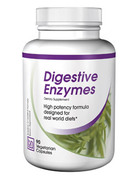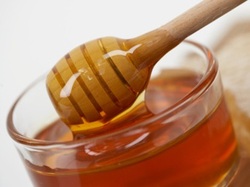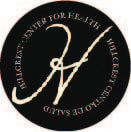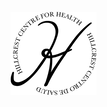 This week a recall came out that affects many of our patients so we thought we would help spread the word. Please continue to share! Health Canada has recalled several digestive enzymes due to the discovery that they have been contaminated by Chloramphenicol. Chloramphenicol is an inexpensive antibiotic which can cause rare, but serious side effects of bone marrow suppression and aplastic anemia. Chloramphenicol has also been know to create a resistance to antibiotics over time, thus its use was largely discontinued in developed countries, but continues to be used in underdeveloped nations. If you are taking digestive enzymes, please check the recall list frequently as new batched are updated: http://healthycanadians.gc.ca/recall-alert-rappel-avis/hc-sc/2013/36355a-eng.php Because the recall spans so many brands, many of them high quality brands like Metagenics, it is believed the contamination happened at the source of the raw materials. They are a handful of raw material suppliers of nutraceuticals in the world, many companies often use the same sources. In this case the supplier was Specialty enzymes & Biotechnologies. What to do if you are taking a contaminated batch? 1. Stop taking it right away. 2. Take a multi-strain probiotic short term to rebalance your intestinal flora. 3. If you are breastfeeding, Chloramphenicol passes through breast milk so possibly re-balancing baby's flora may be indicated. 4. Chloramphenicol is metabolized by the liver and excreted by the kidneys. Make sure your liver is in top shape, some dandelion leaf and root tea would be helpful as the root works on the liver and the leaf on the kidneys. 5. Drink lots of water to flush it out of your system. 6. If you are still worried, consult with your Naturopathic Doctor.
0 Comments
 We came across this article this week "Asian Honey: Banned in Europe, Is Flooding U.S. Grocery Shelves" and thought we would share it with you as many of us may be unwittingly consuming these contaminated products. The article states that honey (and bee pollen) coming from India and China was contaminated with heavy metals and antibiotics. Honey from India was now banned in Europe, thus diverting its supply to North America where no ban is in place. "Food safety investigators from the European Union barred all shipments of honey from India because of the presence of lead and illegal animal antibiotics. Further, they found an even larger amount of honey apparently had been concocted without the help of bees, made from artificial sweeteners and then extensively filtered to remove any proof of contaminants or adulteration or indications of precisely where the honey actually originated. An examination of international and government shipping tallies, customs documents and interviews with some of North America’s top honey importers and brokers documented the rampant honey laundering and that a record amount of the Chinese honey was being purchased by major U.S. packers." We all know by now that many products coming from Asia are contaminated and it makes sense that we try and avoid these products, unfortunately many of the pollen containing products on the market do not state the source of their raw materials. Just because a product is "Made in Canada" or "Made in the USA" does NOT mean that the raw materials originated in those countries, it just means that's where the product was put together. This is why at our Centre we have strict policies on what is sold in our dispensary. Our honey for instance, comes from Carlisle, Ontario, straight from the farm where it is collected and bottled. Our bee pollen comes from the same farm too, they are both raw, unprocessed and free of contaminants. The farm itself is a small family business that was started in 1981 and has been passed on through generations with about 750,000,000 hardworking bees on staff. We are proud to support small family businesses like ours, especially when we can reduce our ecological footprint by reducing the distance our products need to travel. Our goal is to teach our patients and clients to ask questions, read labels, be smart consumers! Buying local isn't just about supporting the local economy or being patriotic, its about food safety and confidence in your food supply too! When soap started being marketed as "anti-microbial" it took a turn from being a tool for keeping us healthy by keeping germs away, to being a detriment to our health by creating a sterile environment and antibiotic- resistant bacteria.
In order to be marketed as antimicrobial, heavy duty bacteria-busting chemicals must be added. Sadly these additives, like Triclosan have become common household items, found in soap, toothpaste and deodorant. Triclosan was created over 40 years ago as a disinfectant for hospitals, and its use has become so prevalent in our society that a survey done by the CDC found it present in the urine of over 75% of Americans age 5 and over! Triclosan has been claimed to be an endocrine disruptor and its use can also eradicate the good bacteria that lives on our skin as well as the bad! This takes a toll on our immune system and unnecessarily creates bacteria that are resistant to antibiotics. Authors Smith & Lourie warned about Triclosan in "Slow Death by Rubber Duck", as did the CMA in 2009, and now Health Canada is finally taking heed, planning to finalize its risk assesment of the chemical (along with phtalates, flame retardants and others) in the next few years. In the meantime, I encourage you all to avoid use of anti- microbial soaps, detergents, etc. Read your labels carefully, especially deodorant & toothpaste! Opt for natural, chemical-free products where you can. Sadly this is only one of the toxic ingredients out there, there are many more! For more information on Triclosan & Anti-Microbial soaps check out the following: Common toothpaste additive triclosan to be deemed toxic to environment - Environmental Defence bit.ly/H9SAQa "Should antibacterial soap be outlawed?" -Discovery Health http://bit.ly/H9QLCI "Triclosan, an Antibacterial Chemical, Raises Safety Issues" - NYTimes.com http://nyti.ms/HMTYwv "Consumer Antibacterial Soaps: Effective or Just Risky?"- Oxford Journal http://bit.ly/hcJ1hR "Are Antimicrobial Soaps Breeding Tougher Bugs?"- Washington Post http://wapo.st/HMV37p Slow Death by Rubber Duck- Rick Smith & Bruce Lourie Post written by: Alexandra Hurtado, ND |
About UsWelcome to the Hillcrest Centre for Health a community focused health centre offering a full spectrum of safe and effective health care services and supplements by combining a wellness clinic, healing spa and natural health boutique all in one convenient location! Archives
November 2013
Categories
All
Newsletter Archive |
hillcrest centre for health
Community health begins with you!
|
Phone: (416) 651-6602
Fax: (416)-651-9058
Email: [email protected]
Address: 832 St Clair Ave W. Toronto, ON M6C 1C1
|
© 2000-2024
Centro Naturista Guatavita Inc.
Centro Naturista Guatavita Inc.

 RSS Feed
RSS Feed
